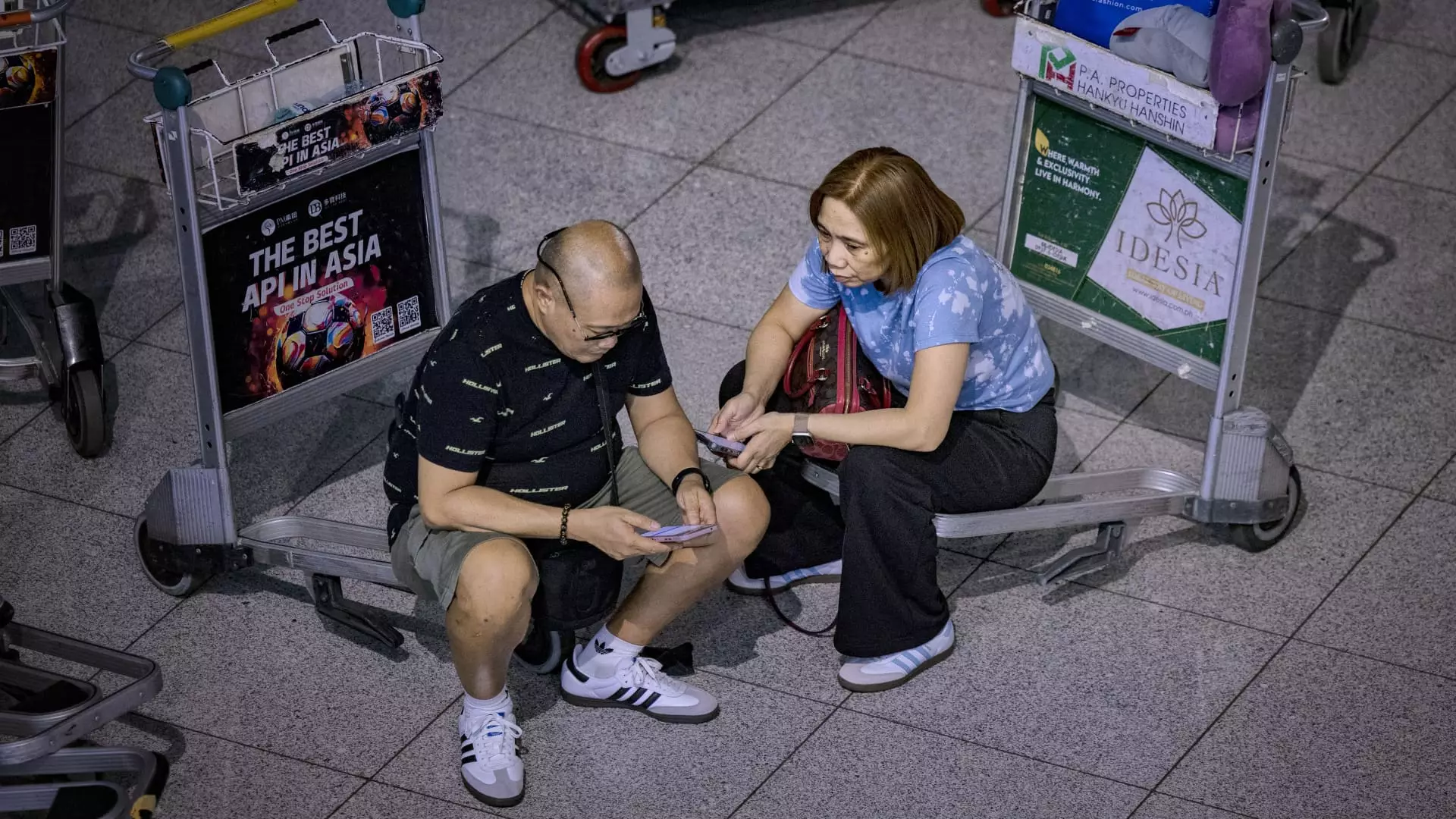On a recent Friday, airlines around the world experienced a major disruption due to an unprecedented IT outage caused by a cyberattack. The outage impacted global operations and led to flights being halted, delays, and service disruptions. This cyberattack was linked to a tech update at cybersecurity giant CrowdStrike, which then caused organizations like Microsoft to struggle to restore essential apps and services used by numerous firms.
The effects of the IT outage were visible at airports worldwide, with flight update and check-in monitors displaying the infamous blue screen of death, which indicates a Microsoft system error. Images shared on social media revealed the chaos at airports, including a whiteboard displaying flight updates at Belfast International Airport in Northern Ireland, and a handwritten boarding pass for a flight with India’s IndiGo.
The disruption caused mayhem not only for individual users but also for large institutions such as banks, stock exchanges, and airports. Operations during the peak holiday season were severely affected, with over 38,000 flights delayed globally and more than 4,200 flights canceled as a result of the IT outage. The chaos extended into various sectors, causing widespread disruptions.
Despite the challenges faced by airlines, efforts were made to resume operations. U.S. Secretary of Transportation Pete Buttigieg expressed optimism that transportation delays would be smoothed out and return to normal by the following day. Airlines across Europe, the Middle East, the Americas, and Asia informed passengers about the impact on flight schedules and advised them to check their flight status regularly.
American Airlines, Delta, and United gradually resumed flight departures but expected delays and cancellations throughout Friday. Passengers were offered waivers to change their travel plans due to the disruptions. Despite the uncertainty and inconvenience, passengers like Colby Black remained understanding and patient, acknowledging the challenges faced by airlines during the crisis.
European airlines such as KLM, Air France, Lufthansa, and Eurowings faced varying degrees of impact from the global IT outage. While KLM reported almost complete resolution of its IT issues, disruptions were expected to continue. Air France’s operations returned to normal, with some delays possible. Lufthansa reported minimal impact, mainly affecting specific routes.
The chaos caused by the cyberattack extended to air traffic control services, leading to reduced transit traffic capacity in Switzerland. British Airways, Virgin Atlantic, Gatwick, and Heathrow airports in London all anticipated flight disruption. Aviation analytics firm Cirium highlighted the significant impact of the IT outage on the busiest day of flights, with a high number of cancellations globally.
In addition to flight disruptions, self-check-in systems at airports in Taiwan, Singapore, and Hong Kong experienced temporary outages. Mainland Chinese airlines were spared from the impact due to their use of a different system. The IT outage highlighted the vulnerability of air travel systems to cyber threats and the importance of robust cybersecurity measures.
The global cyberattack that led to the IT outage had far-reaching consequences on the aviation industry, causing widespread chaos and disruption to operations. Airlines and passengers alike were affected by the unprecedented event, underscoring the need for enhanced cybersecurity measures and preparedness to mitigate the impact of future cyber threats on air travel.

